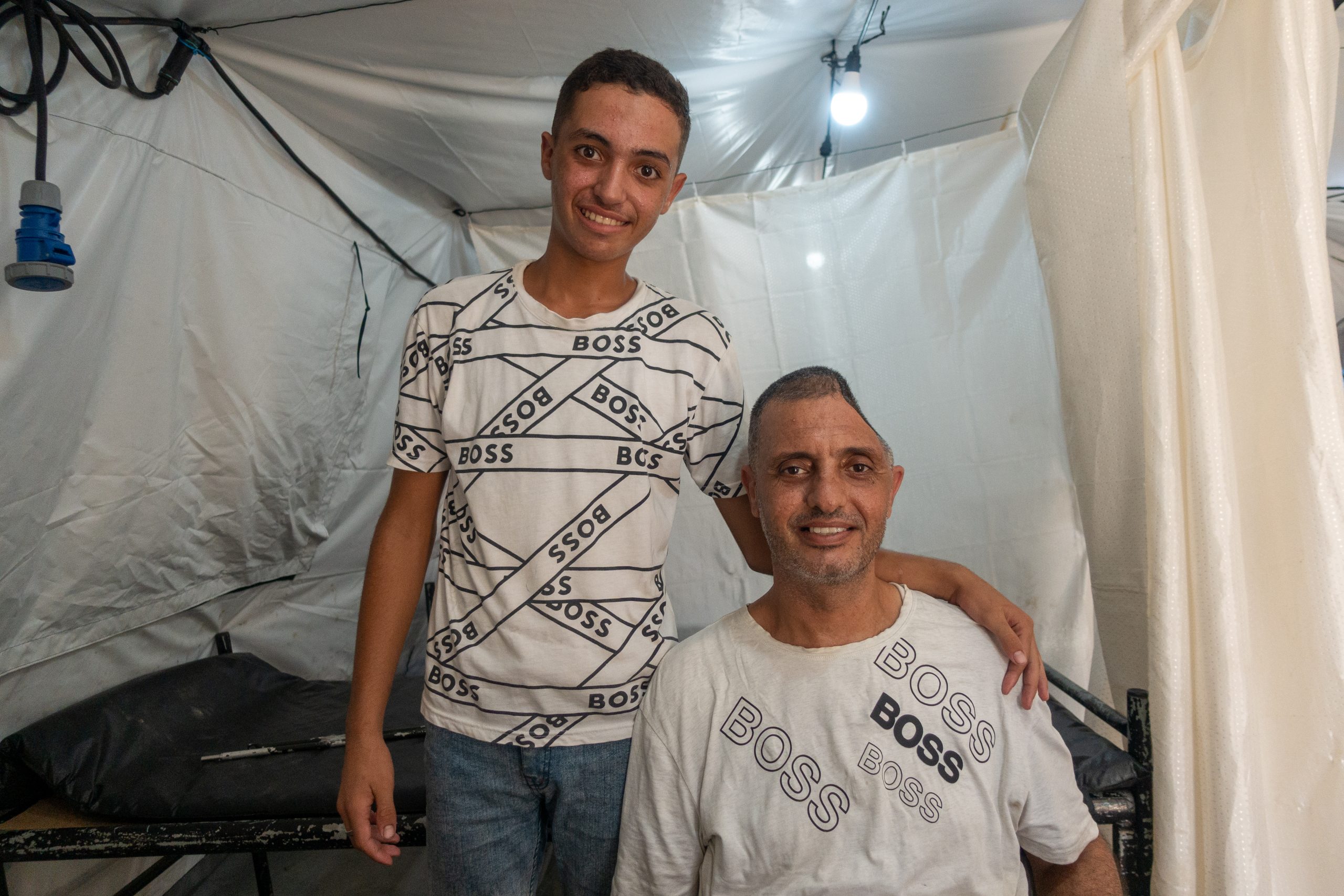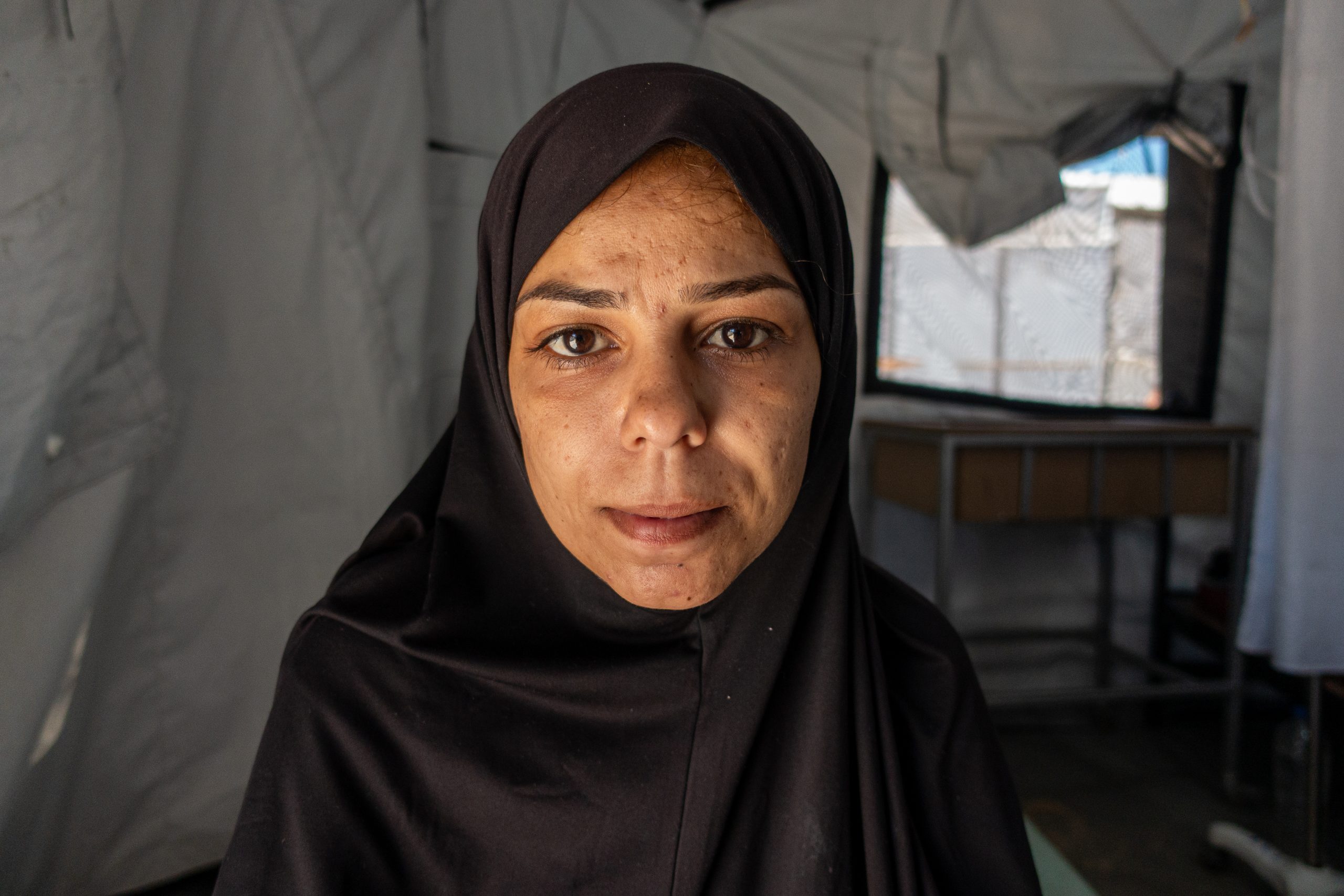
Civilians are the first casualties of war. Our mandate is to ensure they receive the healthcare they so desperately need when crises hit. Gaza continues to be one of the most difficult places on earth to access medical aid, with buildings lying in ruins, basic infrastructure such as transport and water fractured beyond repair, acute food shortage, and amid it all, families trying to survive.
Yet even in such challenging circumstances, the needs of the people are not abstract — they are immediate, tangible, and urgent. Mothers are giving birth outside of facilities. Children are suffering from preventable illnesses such as polio. Patients with chronic conditions are losing access to lifesaving treatment. The health crisis in Gaza is not just a statistic; it is the sum of countless personal emergencies happening simultaneously, every day.
We are one of the largest medical INGOS still on the ground. In the past week, our surge ward at our Type 2 (T2) field hospital in Al Mawasi has reopened, inundated by those arriving from a full Nasser Hospital which is currently experiencing over 100 percent bed occupancy in their emergency department, mass casualty incidents (MCIs) are leaving an already collapsed health system teetering on the brink.
This means the needs of the population are increasing day on day, and needs are increasingly going unmet.
Paula Tobin, NHS nurse and UK-Med T2 field hospital lead, is on her fourth deployment to Gaza and is witnessing this unfold in real-time. She thought the last time was bad enough but eight days into her arrival, she is sadly being proved wrong. There are limited medical supplies left, and essential medication such as antibiotics, pain killers and anaesthetics will run out first.

This is compounded by food scarcity among the population which impacts staff and patients alike and, of course, malnourished patients suffer an uphill battle in their recovery. Disruption to food assistance is happening in tandem with a steep uptick in local market prices. According to the World Food Programme (WFP), during the first half of March, commercial food prices have surged, with some fruits and vegetables increasing by over 200 per cent compared with levels earlier in the year.
Paula explains the T2 field hospital in Al Mawasi is once again completely surrounded by makeshift camps:
‘There’s not a spare piece of sand to see. Everyone is back in temporary shelters.’
This makes it much more difficult to transfer patients between facilities providing specialist care, due to growing security concerns and limited access. Decisions about what to prioritise are commonplace, with many tough calls about which patients to look after first and which to provide with beds. These are not decisions anyone should have to make.
UK-Med CEO, David Wightwick CMG, explains:
“The sheer scale and immediacy of the need is overwhelming. Our staff are operating under unthinkable conditions – now grappling with their own hunger, alongside the emotional and physical toil of looking after patients. UK-Med is working alongside local and international partners to provide urgent frontline medical care. That includes surgical support, and emergency care for people injured in the conflict.”
Since the beginning of the current conflict in Gaza, UK-Med has been present. We were one of the first international medical organisations to deploy, and we have stayed through the hardest months.
So far, we have provided over 400,000 consultations for people impacted by this conflict, conducted over 2,600 surgeries and delivered almost 600 newborns.
We have established and operated two field hospitals — in Al Mawasi and Deir al-Balah — and supported the emergency department of Nasser Hospital. We have deployed scores of medics, many of whom were trained and have worked within the NHS. These are doctors, nurses, paramedics, physiotherapists, and logisticians who volunteered to put themselves in harm’s way because they believe every life matters.
Many of our Palestinian colleagues have worked alongside us in conditions that most people could barely imagine: treating serious injuries while lacking essential medicines, stitching wounds even when their own safety is threatened, and comforting children with no family left to name.
As always, our priority is to deliver medical care where it’s needed most, guided by humanitarian principles. Our team is focused on saving lives, reducing suffering, and supporting local health systems under immense strain.
In crises of this scale, the role of emergency medical organisations is to be present, professional, and practical. That’s what UK-Med is committed to doing—today, and for as long as we are needed.
Notes to Editors
UK-Med has been working in the Gaza Strip since January 2024. It runs two field hospitals in Al Mawasi and Deir al-Balah respectively, both funded by the Foreign, Commonwealth and Development Office. UK-Med also supports the emergency department at Nasser Hospital with funding from the World Health Organization. UK-Med employs around 600 Palestinian staff in Gaza, supported by a small international team comprising mostly medics.





